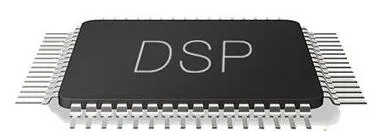How to choose good sensors in energy storage systems
Temperature sensors play a crucial role in energy storage systems, monitoring and controlling the temperature in the system by measuring changes in temperature to ensure operational stability and efficiency. The common types of temperature sensors on the market include thermocouples, thermistors, infrared sensors, etc., each of which measures temperature based on different physical principles.
In energy storage systems, the specific requirements for temperature sensors include accuracy, response speed, stability, and other aspects. Energy storage devices, especially battery systems, may experience significant temperature changes during the charging and discharging process.
High precision and long-term stability are crucial for ensuring that the battery management system (BMS) correctly determines the battery status. Choose sensors with high precision levels and verified long-term stability. High stability performance ensures accurate temperature measurement throughout the entire service life, with an annual drift rate within ± 0.2 ℃.
Energy storage systems often require long-term trouble free operation, and it is necessary to choose sensors that are wear-resistant, chemically resistant, and adaptable to harsh environments. For example, sensors should be able to withstand the maximum operating voltage of the battery pack and have good chemical corrosion resistance to resist corrosion from electrolytes and other chemicals.
It should be noted that temperature sensors in energy storage systems are directly related to public safety, so the design pays more attention to fault safety mechanisms rather than just performance. To cope with harsh environments such as electromagnetic interference, vibration, dust, etc. in energy storage systems, these sensors typically have stronger mechanical protection and electrical isolation designs.
Energy storage systems tend towards intelligent management, with temperature sensors often integrated with communication functions that can transmit real-time data to BMS or the cloud for remote monitoring and analysis. Moreover, energy storage systems have different sensor requirements depending on the application scenarios (such as portable, household, and vehicle), so they tend to adopt customized or modular sensor solutions.
Selection of temperature sensors in energy storage systems
Compared with temperature sensors in other products, temperature sensors in energy storage systems not only have higher safety levels, but also require special packaging and protection. And the voltage in the energy storage system is relatively high, the sensor must be able to withstand the corresponding maximum working voltage to ensure the electrical safety of the system.
Choosing the appropriate temperature sensor is crucial for producing efficient energy storage products. Firstly, compatibility needs to be ensured. The selected temperature sensor should be compatible with the positive and negative electrode materials, separator materials, and electrolyte of the battery to ensure the efficient and stable operation of the entire system.
When installing, consider installing temperature sensors in different positions such as battery gaps or battery pack strips, as well as in cooling pipes, to achieve the best temperature monitoring effect. And according to the design of the BMS control board, select suitable integrated, bundled, or adjacent temperature sensor structures to meet different installation requirements.
Choose sensors with good long-term stability to ensure accurate temperature measurement throughout their entire lifespan, reducing maintenance costs and frequency. Considering the cost-effectiveness of sensors while meeting all technical requirements, choose products with high cost-effectiveness to optimize overall costs.
In short, engineers should comprehensively consider the above factors when selecting temperature sensors for energy storage products, ensuring that the selected sensors can meet the special requirements of the energy storage system while also taking into account economic benefits. By carefully selecting and correctly installing temperature sensors, the performance and safety of energy storage products can be effectively improved, providing users with more reliable and efficient energy storage solutions.
There are many sensor manufacturers in the current market, such as Honeywell, TI, ABB, SenseTime, Amphenol, etc., all of which can produce temperature sensors suitable for energy storage. When choosing the appropriate sensor, it is recommended to directly visit the official websites of each manufacturer or contact a sales representative.
Summary
The temperature sensor in the energy storage system needs to meet a series of strict technical requirements to ensure the safe and efficient operation of the battery. These requirements reflect the critical role of energy storage systems in modern energy solutions, as well as the important position of temperature monitoring in them. Through continuous technological innovation and standard setting, the performance of temperature sensors for energy storage will continue to improve, further promoting the development and application of energy storage technology.
To find products and services more accurately, please try entering keywords for search.
For more product and service content, please contact us and send an email to sales@dimud.com.
We sincerely look forward to connecting with you!


